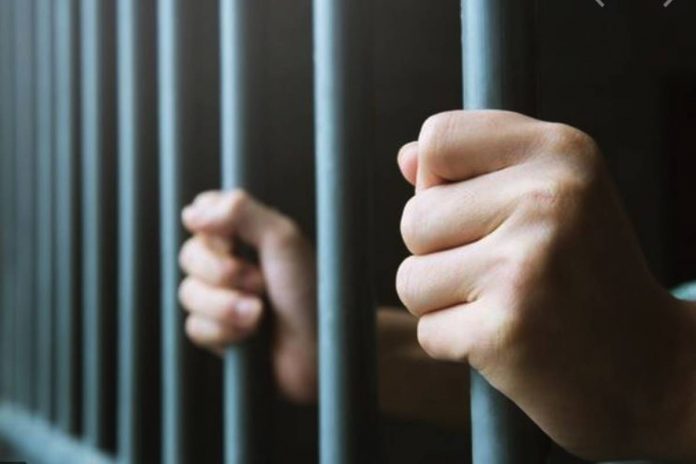This article is written by Tanisha Agarwal.
Table of Contents
Introduction
More than 10.2 million people worldwide are held in prisons. A prison is a state of confinement and captivity for the law breakers who indulge in heinous crimes. People generally have thought that the criminals sent to prisons is out of punishment and not for punishment. There is a general impression of people where it is understood that being in a prison the prisoner has lost its rights of liberty because he is being forced to live in a closed confined place. As of 2019, the latest figures available for India (which is being confirmed by World Prison Brief) has 4,78,600 prisoners (including pre-trial detainees).
Majority of prisoners in India are uneducated, poor, belonging to marginalized section of the society who has limited knowledge about their health and lifestyle practices. As a result, they constitute a distinct and vulnerable health population that requires special privileges.
While the lack of awareness about the health of prisoners is a major human rights concern, the need to manage illness in jails as part of a bigger public health agenda and as part of primary healthcare is a concept that has yet to catch on in India. This article examines the present state of prison healthcare in India, as well as the different potential opportunities that the “jail window” affords for reaching those members of society who do not have access to basic healthcare or are unable to do so.
Prisons and communicable illnesses
In India, overpopulation has exacerbated the issue of sanitation. Conditions in many prisons are deplorable. Even minimal facilities are not supplied at tehsil level prison. In India, inmates are not even screened for certain infectious illnesses, despite the fact that all inmates are given a medical check when they start serving their sentence. Sexually transmitted illnesses (STIs), HIV/AIDS, Hepatitis B, and Hepatitis C are all known to be common among inmates. Hostility among detainees is exacerbated by the cramped, frequently severely overcrowded housing circumstances.
The monotonous jail atmosphere, a lack of mental and physical stimulation, and simple boredom all contribute to a build-up of irritation and anxiety. This setting encourages high-risk behaviors such as drug usage and male-on-male sex. Some people engage in these activities to avoid boredom. According to a research released in 2007, HIV prevalence among prison populations was higher than 10% in 20 countries. There is evidence of a high prevalence of HIV/STIs in Indian prisons, however, it is limited. According to a study on HIV prevalence in Indian jails, 1.7 percent of male detainees and 9.5 percent of female detainees were HIV positive. This is much higher than the national HIV prevalence of 0.32 percent for men and 0.22 percent for women.
Human Rights Watch has recorded high rates of tuberculosis in India, and a 2008 research revealed that TB was responsible for 9% of prison fatalities. In fact, Brazilian research found that 54 percent of Mycobacterium tuberculosis strains in an urban population “were connected to strains from inmates in prisons,” demonstrating that TB may spread from prison to community. With HIV being one of the leading causes of death in prisons and the threat of MDR-TB hanging big over the country, a strong focus on TB control in prisoners is critical for TB control in the general population.
The Gujarat High Court ruled in Rasikbhai Ramsun Rana vs. State of Gujarat that petitioners incarcerated in the Central Prison, Vadodara, who were suffering from serious illnesses, were denied sufficient and prompt medical care due to a lack of jail escorts necessary to transport them to the hospital, and that the court held negligent officers personally accountable. The Gujarat High Court granted directives to the state government in 2005 in a suo moto writ suit to guarantee that all Central and District prisons were equipped with an ICCU, pathology lab, expert physicians, sufficient staff including nurses, and the most up-to-date medical treatment devices. In Sanjay V. State (CRL.A.600 of 2000), the Delhi High Court ordered the Tihar Jail administration to offer meditational therapy and counselling to convicts.
In the landmark case of Parmanand Katara Vs Union of India (1989 AIR 2039), the Supreme Court held that the state has a duty to maintain life regardless of whether the individual is innocent or guilty of a crime, setting a strong precedent for prisoners’ rights in India, particularly the fundamental right to health guaranteed by Article 21 of the Indian Constitution.
In 2016, the Supreme Court issued another major ruling on the legal and constitutional rights of Indian inmates, particularly those held in re-inhumane conditions at 1382 prisons (AIR 2016 SC 993). The case was filed to address the state of prison reforms in India and to provide instructions, and the court’s orders led to the Ministry of Home Affairs developing the New Model Prison Manual, 2016.
- Over-crowding in Civil Jails: The civil jails are overcrowded as a result of this unjust and arbitrary arrest and detention of judgement debtors, with figures spanning hundreds in certain states. Section 51 of the Code of Civil Procedure authorizes the court to direct the execution of a decree by arresting and detaining the judgement debtor in prison for the term stated in section 58 of the CPC in suitable instances. If the entire amount of the decree does not exceed five hundred rupees, no order of detention of the judgement debtor in civil jail can be granted. Almost all jails in India today are overcrowded, indicating they are housing more convicts than the facilities were designed to house. However, in certain places, the issue is exacerbated by a severe shortage of resources, and as a result, it is usual to find jail populations surpassing maximum capacity by several hundred percent.
“Our legal system, especially in severe instances, suffers from slow-motion syndrome, which is fatal to ‘fair trial’ whatever the end outcome,” Justice Krishna Iyer said while dealing with the bail petition in Babu Singh v. State of UP. He also added that speedy justice is a component of social justice since the community as a whole care about the criminal being treated with dignity and eventually punished in a fair amount of time, and the innocent being spared from the suffering of criminal or civil processes.
Indian prisons: mental health and suicide
Mental illness is yet another major public health issue, with a high frequency among convicts. For the sake of justice and to ensure the protection of basic human rights – an essential ethos of the Indian constitution and society – it is critical to identify and treat persons with mental health disorders. Studies done internationally have found the prevalence of mental illnesses to be three times higher in prisons when compared to the general population.
A mentally ill prisoner is a person who has been ordered to be detained in or removed from a psychiatric hospital, psychiatric nursing home, jail, or any other place of safe custody under section 27 of the Mental Health Act, 1978 (hereafter ‘MHA’).
Suicide fatalities in Indian jails have been estimated to be as high as 5–8%. According to a 2008 research, suicide was the cause of 11 percent of prison deaths. Unnatural deaths in custody, especially suicides, frequently result in accusations of police brutality and torture.
Problems faced amidst pandemic
Article 21 of the Constitution guarantees personal liberty and, as a result, forbids any inhumane, cruel, or humiliating treatment of anybody, whether a native or a foreigner. Any breach of this right is punishable under Article 14 of the Constitution, which guarantees equality and equal protection under the law. Furthermore, the Prison Act of 1894 particularly addresses the issue of prisoner abuse. If a prisoner is subjected to abuse, the jail administration is held accountable.
As the epidemic spreads, scientists warn that more funding for public healthcare is needed. Despite the fact that the Indian Constitution does not define a fundamental right to health, the Supreme Court has recognised that the right to life encompasses a comparable interest and has embedded a constitutional responsibility to provide health care to all. Yet the health needs of prisoners have been neglected. More than two decades ago, the Supreme Court upheld the protection of prisoner’s health.
The Supreme Court’s mandate is still being disobeyed by governments. The task of maintaining the dignity of inmates falls on the state. Despite this, the Supreme Court stated in March 2020 that deplorable jail conditions continue. It ordered all states and jail authorities to take immediate steps to ensure that proper medical care is available. Measures included transporting convicts for decongestion or medical help, developing reaction plans in cooperation with medical professionals, and establishing monitoring teams. There is no formal public data to verify if the directions have been executed nearly four months later. A huge proportion of inmates are still infected with the illness.
Overcrowding has a variety of factors, particularly under India’s current bail system. For example, district-level committees responsible for examining cases and monitoring jail conditions do not meet on a regular basis, resulting in jail overstays and delays in releasing eligible detainees on bond. Bail hearings are regularly postponed by courts, and most inmates get substandard legal representation. Inmates look forward to seeing their families, but this has been discontinued during the lockdown, with few options in sight. However, several jails have begun to implement regular video calling services and have increased the number of payphones available.
To curb the situation, a bench led by Chief Justice N V Ramana and Justices L Nageswara Rao and Surya Kant ordered that all those convicts who were granted bail by high-powered committees of states and Union Territories (UTs) following the apex court’s ruling in March last year be provided the same relief without review by HPCs. The Supreme Court issued directives for decongestion of jails on Saturday, citing a “exceptional rise” in COVID-19 cases across the country, and ordered the immediate release of all convicts who were granted bond or parole last year in light of the epidemic. According to a ruling, officials should not make routine arrests in situations where the possible punishment is up to seven years in prison. It also instructed the high-powered committees to evaluate the release of new inmates by implementing the National Legal Services Authority’s rules on the subject.
The court also stated in the judgement that jail overpopulation is a problem that affects various nations, including India. The court stated that efforts should be taken to restrict the spread of Covid-19 by testing both convicts and correctional employees on a regular basis and making urgent treatment available to them. “In this connection, we may remark that the demand of decongestion is an issue touching the health and right to life of both the jail prisoners and the police personnel working,” the court said, noting that the country has over four lakh jail prisoners and that certain prisons are already holding prisoners over their ideal capacity.
COVID-19 has clarified the inadequate healthcare that prisoners across India receive. A failure to address this health crisis layers a new informal punishment atop the formal one that courts mete. It has to stop. It can be seen that the top court has been trying its best to improve the condition but interference of government is becoming certain things difficult for the inmates to survive in the place like that. Experience also shows that financial flexibility and autonomy in decision making helps avoid unnecessary bureaucratic delays. Personalized prison management and collaboration with outside businesses can improve food quality, sanitation, medical facilities and prisoners’ behaviour.
Hope that situation can get better in the near future as prisoners still has protection of life and personal liberty provided in Article 21 of our Indian Constitution.
LawSikho has created a telegram group for exchanging legal knowledge, referrals, and various opportunities. You can click on this link and join:
 Serato DJ Crack 2025Serato DJ PRO Crack
Serato DJ Crack 2025Serato DJ PRO Crack










 Allow notifications
Allow notifications


